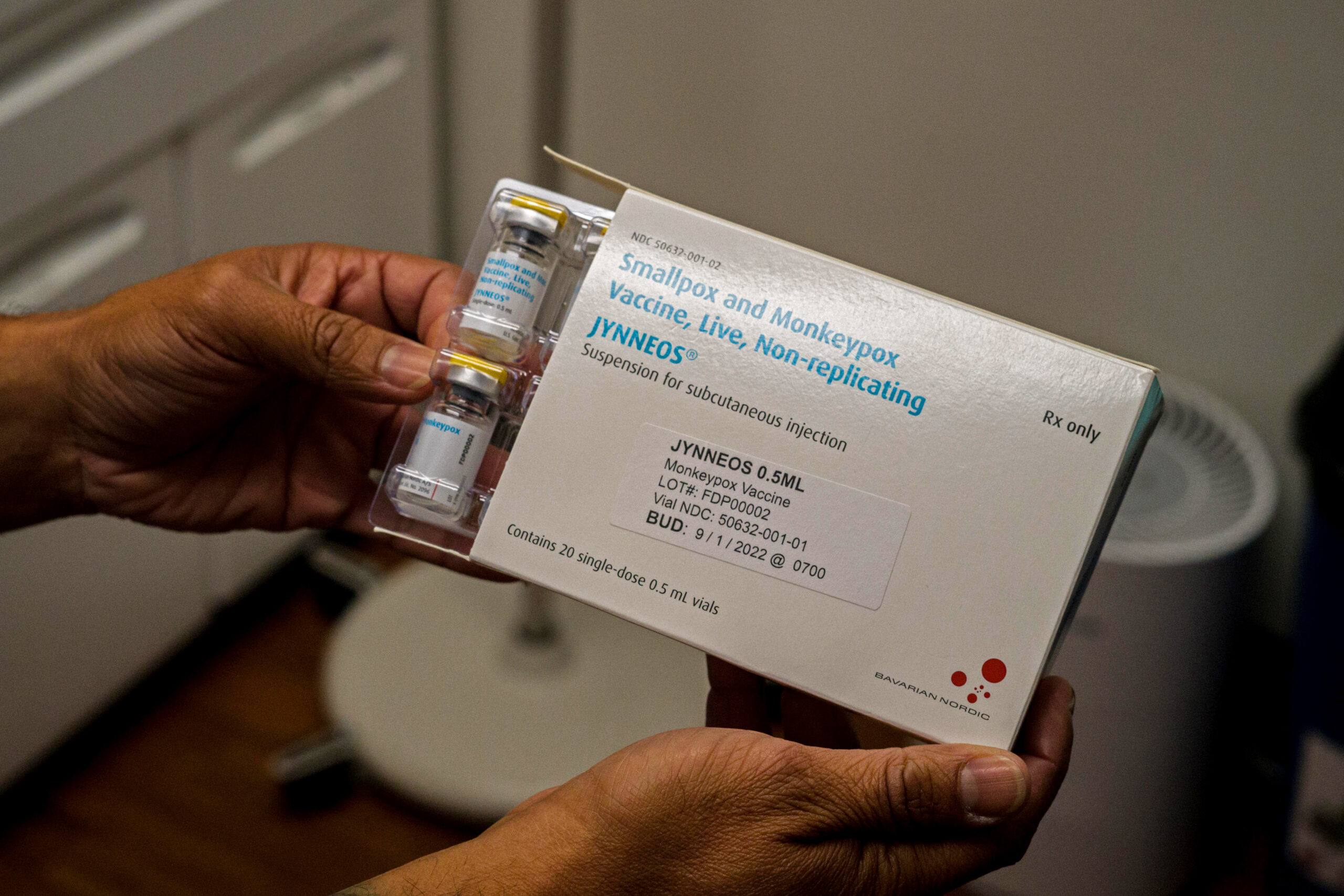San Francisco is one of the clear hotspots in the monkeypox outbreak, with the city becoming the first in the nation to declare a state of emergency (ahead of Gov. Newsom’s declaration Monday of a California-wide emergency) due to rising case counts. But when it comes to vaccine distribution per confirmed case, the city trails far behind other metropolitan areas.
As of July 29, San Francisco’s 305 cases were essentially tied with Los Angeles County’s 306 confirmed cases. But on a per capita basis, San Francisco ranks first among all California counties when it comes to monkeypox infection, with roughly 12 times more cases per 100K residents compared to Los Angeles County.
San Francisco’s Department of Public Health initially requested 35,000 doses of the monkeypox vaccine, but had only received around 7,552 doses as of July 29. The disconnect between vaccine supply and demand has led to situations where distribution centers have had to shut down days early after running through their inventory.
As a point of comparison, Los Angeles County had received 24,042 doses of the vaccine as of July 29.
In an effort to extend a meager supply, health officials in San Francisco are prioritizing first doses of the two-dose Jynneos vaccine with the expectation of offering second doses when supplies are more readily available. State officials say they have also ramped up testing capacity to process more than 1,000 tests a week.
San Francisco’s vaccine distribution comes by way of a formula from the state’s public health department that includes the number of reported monkeypox cases and an estimate of at-risk populations. But Los Angeles County, along with other metro areas including New York City, Chicago and Houston, receives its own supply directly from the Centers of Disease Control.
San Francisco’s Department of Public Health said that it has requested to receive its allotment directly from the federal government, but has not yet received a response. The city is not notified ahead of time when it will receive an allotment of vaccine, or how much it will receive, adding to the challenge of planning effective distribution. In the meantime, it has worked with surrounding counties to source additional doses.
A Standard analysis shows that Los Angeles County has received 75 doses per confirmed case versus 25 in San Francisco as of June 29.
In fact, when ranking major centers for the virus on this metric, San Francisco sticks out as one of the metropolitan centers with the lowest number of vaccines distributed as of July 29. Washington, D.C., for example, has more than double the number of vaccines per positive case.
Where San Francisco is doing better is in total vaccines per capita. Still, it is behind Washington, D.C. on that measure even with a higher overall number of confirmed cases and a lower overall population.
Monkeypox, which was classified by the World Health Organization last month as a global health emergency, is a viral disease related to smallpox caused by a variety of the orthopoxvirus. Symptoms include fever, headache and blistering rashes and lesions.
The disease is spread primarily through prolonged skin-to-skin contact, as well as through sharing items like clothing, bedding and towels.
According to current demographic data on the outbreak, 97% of monkeypox cases to date in San Francisco have been identified in males, with 83% in gay individuals. Hispanics account for 27% of the cases, nearly double their portion of the SF population.
Local and state officials have been agitating to light a fire under federal authorities to speed up their vaccine procurement and distribution efforts. California public health leaders recently urged federal partners to make more vaccine doses available to the state as quickly as possible, citing the need for an additional 600K to 800K Jynneos vaccine doses.
Federal officials have ramped up their efforts to distribute doses of the vaccine, announcing last week that an additional 72,000 Jynneos vaccine doses have been allocated to California. Los Angeles County alone was promised 48,000.
